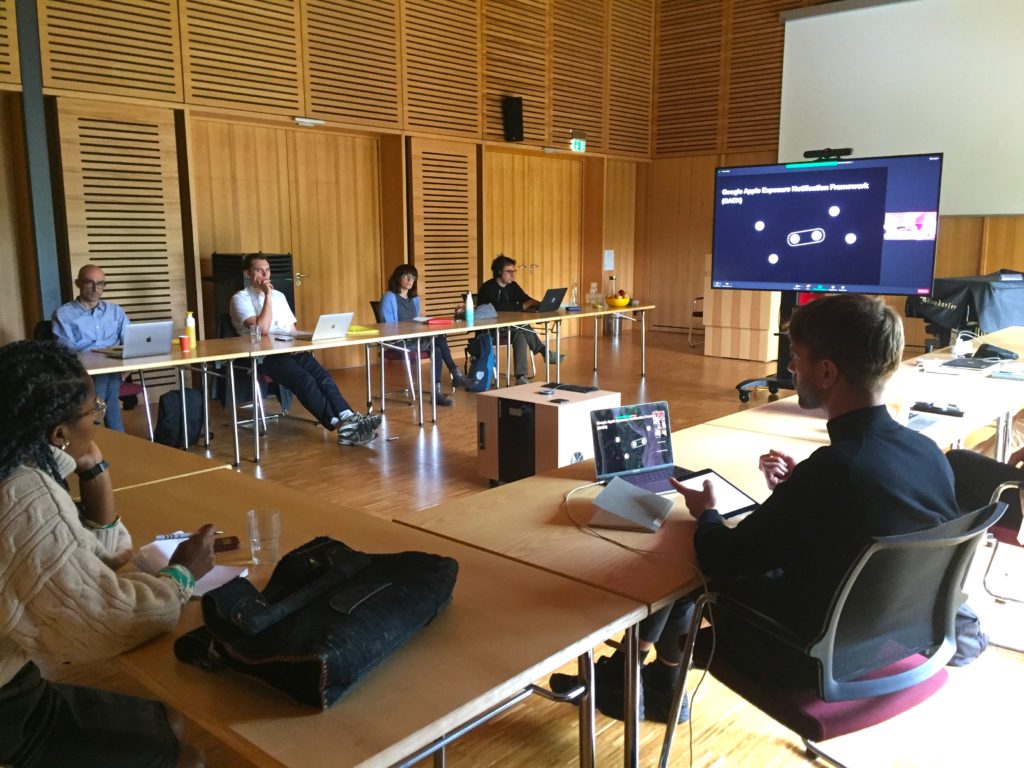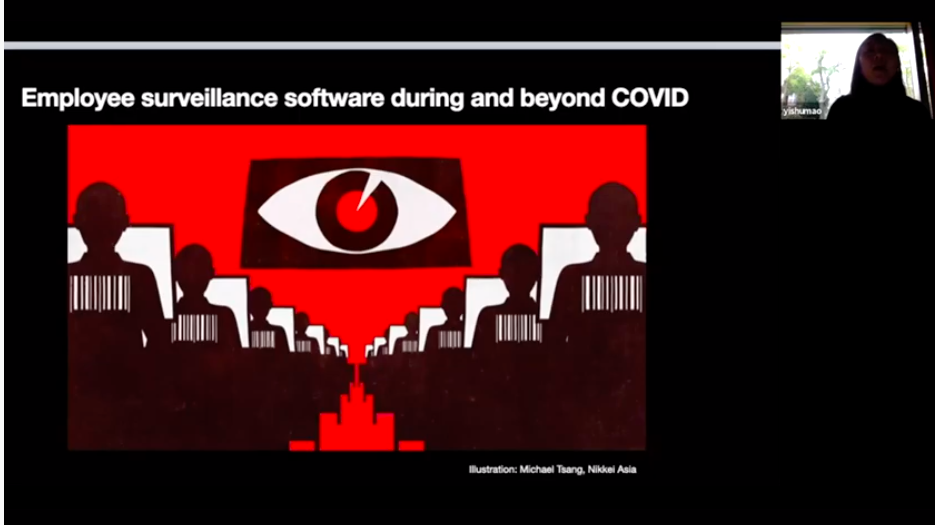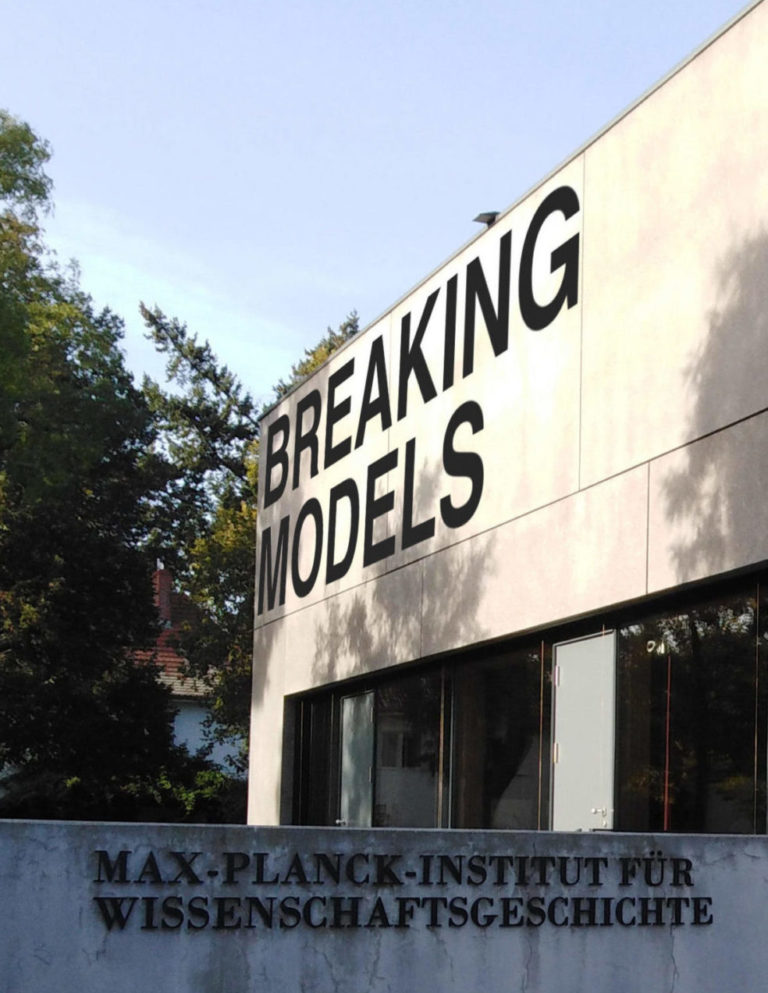The Covid-19 response runs on an unprecedented computational infrastructure for tracking, measuring and forecasting the behaviour of the social body. Going far beyond epidemiology, it has affected the ways in which labour, education and scientific research are organized. On September 24, 2021, the research workshop Breaking Models: Data Governance and New Metrics of Knowledge in the Time of the Pandemic was held to analyse the governance and workings of the platforms, models and metrics that make up this infrastructure.
Evaluating the material, epistemological and sociopolitical factors underlying these changes, as well as the role and state of the ‘vast machine’ of computational infrastructures, was the aim of this workshop. It was organised by the KIM research group lead by Professor Matteo Pasquinelli of HfG Karlsruhe and hosted by the Max Planck Institute for the History of Science in Berlin (MPIWG).
The KIM research group, known for its critical studies of digital culture and economy, and specifically its transdisciplinary approach to artificial intelligence, invited scholars from different fields of science studies to exchange on critical analyses and research desiderata. The explorative workshop and its transdisciplinary orientation can be considered a success, not only based on the lively exchange during the event and the general high interest, but also in terms of further research development. The workshop was part of the international research platform All Models and funded by the Volkswagen Foundation program “Corona Crisis and Beyond.”

The workshop was carried out in a hybrid setting, both at a conference room and online, and met with a profoundly positive response from more than sixty participants, contributors, and discussants who remained engaged until the final discussion. The attempt was made to analyse effects not only on the knowledge of the pandemic (such as epidemiological models) but on society at large, that is on labour, education and scientific research, with an emphasis on the respective interrelations of different fields. The workshop analysed the epistemic frictions of three technical components of the governance of the COVID pandemic: platforms, models, and metrics. One of the outcomes of the workshop discussing different approaches to the common topic was the shared view that analyses of infrastructures are increasingly important in studies of science and society.
The workshop was structured into four sections, summarized below in a synthetic description. Video-recordings of the contributions are available at the following link. Most speakers are currently finalizing their respective papers, incorporating feedbacks received during the discussion, and will make them available by the end of the year through academic journal publications.
1. The Politics of Predictive Models
After a brief introduction by the organisers Sascha Freyberg and Matteo Pasquinelli, who emphasised the need for a synthetic and synergetic view on the computational developments during the pandemic in terms of historical and political epistemology, the first contribution was by Kishor Bhat and Manish Gautam. The two members of the Politically Mathematics Collective in India, presented a paper on the ethical and social implications of mathematical models, based on their collective work on the mathematics of modeling and the political decisions and legislative actions during the pandemic in India. Bhat and Gautam, who co-authored the paper with other members of the collective, highlighted how during the pandemic in India Computer scientists became also “health experts” with far reaching influence on setting new minimum wage standards and responsibilities over the distribution of essential goods.
Max Grünberg (KIM HfG Karlsruhe) gave a corresponding insight into the development of digital infrastructures and the automation of business forecasts in the case of Amazon Web Services. It became apparent how powerful and complex these tools are in comparison with the pandemic modeling, and at the same time how precarious their forecasts remain. He concluded his talk with the question of how to unroot the technology from current application and the proposal to repurpose it on the side of labour.
2. Data Infrastructures and Social Inequality
In the second section Arif Kornweitz (KIM HfG Karlsruhe) gave a talk on “Friction, Leaks and Creep: COVID-19 Governance and Data Rights in the Netherlands”. Focusing on the concept of function creep, unwanted change in algorithmic systems, Kornweitz stressed the distinction between rhetorical and functional levels when analysing phenomena like privacy infringements. By analysing how unwanted change is framed as a malfunction, we can understand the norms and political economic interests governing an algorithmic system. Creep, it was proposed, is not a malfunction but is in fact a defining feature or modus operandi of digital infrastructures. This was illustrated by a case study of data leaks and harmful malfunctions in the Dutch contact tracing infrastructure.
In this section, a concept which emerged during the previous conversations of the KIM group was introduced: infrastructural divide. In her talk on “The Global Logistics of Vaccination” Ariana Dongus (KIM HfG Karlsruhe) connected the patent divide debate to this concept, showing how the COVID-19 pandemic amplified inequalities not only in global (north-south) terms but also as a structural problem of control over infrastructures and production.

Yishu Mao (MPIWG Berlin) gave first glances into her research project on “AI Ethics Made in China” and emphasised the gap between technological promises and the actual conditions of labour in particular in the tech industry. This gave further insight into the circle of surveillance of current computational development and management.
3. The New Metrics of Life and Labour
In the third section, Paolo Caffoni (KIM HfG Karlsruhe) and Tania Rispoli (Duke University) put an emphasis on higher education and care labour. Caffoni spoke to concerns and possibilities emerging from the ongoing process of virtualization of higher education. His presentation “The Digital Walls of the University: New Metrics of Labour, Education and Mobility in the COVID-19 Crisis” addressed how the pandemic has brought about a loss of a site for critical intervention in the university discourse and showed the need to engage with underlying shifts in evaluation metrics and their relation with statistical models and the labour market. Processes which began already more than two decades ago, as business oriented reforms of the university, are today legitimized and consolidated over a wider consensus, hardened by the exceptional conditions during the pandemic.

The same normative level was taken up by Tania Rispoli in her feminist analysis of “The Crisis of Reproductive Labor”. Rispoli elaborated on an alternative critical paradigm of computation, proposing a shift from AI ethics to AI politics. Both contributions showed how rapidly norms seep into infrastructures and become the unquestioned premises of social and intellectual labour. They also highlighted the necessity to engage with such technological infrastructure, in order to appropriate and transform its tools.
4. Critical Perspectives
In the final section, the floor was opened to more general questions concerning the relation of science communication, media feedback and critical studies of knowledge systems. Tobias Haberkorn (Berlin/Rome) gave an insightful account about his research for a newspaper article on the expert debate about the SIR model for the spread of contagious diseases. Haberkorn narrated the difficulties a renowned mathematician experienced when criticising the standard, but supposedly insufficient, SIR model used throughout all epidemiological modelling efforts to produce predictions of infection rates. The presentation made clear how hard it became in the current climate to introduce nuanced scientific positions, which diverge from the consensus of a few selected experts.
In his informative overview, Oliver Schlaudt (University of Heidelberg) reflected from a philosophical perspective on the dynamics of science and politics in order to understand what “The Covid-19 Pandemic as a Challenge to Critical Science Studies” provides as lessons. In particular, he pointed to the complex interrelations of scientific and political discourses.

Concluding remarks
The workshop managed to shed light on questions like: How is scientific knowledge produced, disseminated and perceived during the COVID pandemic? Which digital tools and data models are used to map and predict its development? Where to inherent biases and asymmetries of power lie in the different infrastructures? What kind of metric paradigm is emerging in the accelerated collection of data?
The contributions and discussions dealt with the ways in which production and reproduction processes were affected by the accelerated development and increased use of digital tools for communication and management during the pandemic. The main goal of the workshop was to consider the contemporary “knowledge economy” (Renn 2020), in particular knowledge production based on digital infrastructures, platforms and mathematical modeling. In this respect the pandemic was considered as an exemplary case for the expansion and intensification of modeling efforts in all areas of society.
In this respect, Sascha Freyberg pointed to the concepts and contexts of knowledge systems and knowledge production, the relation of infrastructural divide and the ‘finalization thesis’ in science studies, and Matteo Pasquinelli spoke of the ongoing definition of a “new social contract” in which data infrastructures play a role and constitute a sort of “gravitational pull” also for science and its traditional methods.

